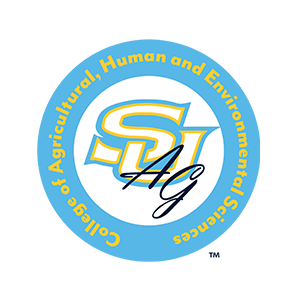Animal Management Systems
The US Department of Agriculture defines an animal as any live or dead dog, cat, non-human primate, guinea pig, hamster, rabbit, or any other warm-blooded animal which is being used, or is intended for use for research, teaching, testing, experimentation, or exhibition purposes, or as a pet. This term excludes birds, rats of the genus Rattus and mice of the genus Mus bred for use in research, and horses not used for research purposes and other farm animals, such as, but not limited to livestock or poultry, used or intended for use as food or fiber, or livestock or poultry used or intended for use for improving animal nutrition, breeding, management, or production efficiency, or for improving the quality of food or fiber. With respect to a dog, the term means all dogs, including those used for hunting, security, or breeding purposes.
Animal Science is concerned with the science and business of producing domestic livestock species, including but not limited to beef cattle, dairy cattle, horses, poultry, sheep, and swine. An animal scientist applies principles of the biological, physical, and social sciences to the problems associated with livestock production and management. Animal Science is also concerned with foods of animal origin: meat, dairy foods, and eggs. The food industry is one of the largest and most important industries in the United States. In addition, animal science is concerned with aspects of companion animals, including their
nutrition, care, and welfare.
The animal science research program at SUALGC addresses critical needs to enhance animal productivity and profitability while preserving, protecting and sustaining the environment. The research program includes value-added products and formulations to improve the quality of life among Louisiana citizens.
Program Leader:
Calvin R. Walker, Ph.D.
Associate Vice Chancellor for Research
Professor of Animal Science
Room 118A Fisher Hall
Ph:225-771-3204
Email: calvin_walker@subr.edu
